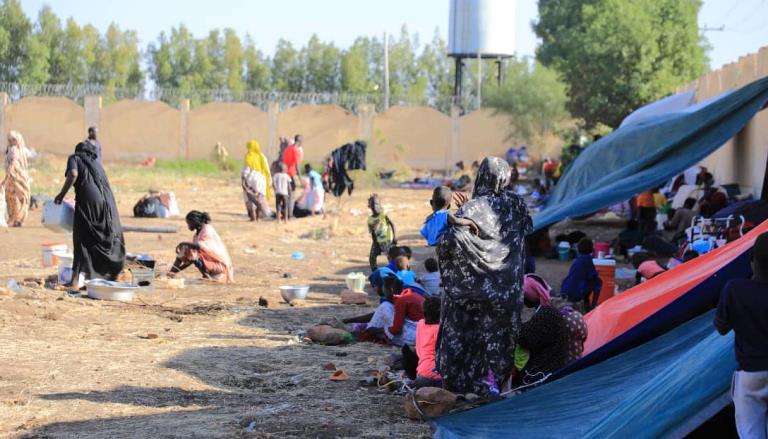Overwhelmed Gedaref seeks UNHCR help to house displaced as rains approach
April 25, 2024 (GEDAREF) – Fearing the upcoming rainy season, Gedaref Governor, retired Major General Ahmed Mohamed Hassan, pleaded with the United Nations High Commissioner for Refugees (UNHCR) to fund alternative housing for the tens of thousands of displaced people and refugees residing in the state.
Gedaref already hosts over 100,000 Ethiopian refugees. The situation worsened significantly after a year of conflict between the Sudanese army and the Rapid Support Forces (RSF). The influx intensified further following the RSF takeover of neighbouring Al-Jazirah state late last year.
On Wednesday, Christina Hambrick, the UNHCR’s representative in Sudan, visited Gedaref. During her visit, she met with officials and participated in the launch of new electricity programs and UNHCR’s support for Gedaref Hospital.
Governor Hassan urged the UN official to prioritize funding “alternative housing with essential services before the rainy season begins” for the displaced population. He further emphasized the critical need for UNHCR’s immediate intervention to bolster healthcare, education, and water access for these vulnerable communities.
Hambrick acknowledged the situation’s urgency and outlined a rapid response plan to increase humanitarian aid for the displaced. She emphasized the need to address the war’s consequences. The plan involves supporting health and education through partnerships with UN organizations like the World Health Organization, International Organization for Migration, and UNICEF.
Al-Nadir Ibrahim, Director of Gedaref Hospital, highlighted the challenges in providing medical care due to the overwhelming number of patients, exceeding 500 daily. The hospital faces a severe shortage of staff and resources due to the continuous influx of displaced people, refugees, and seasonal workers.
Up to 80% of hospitals in Sudan’s conflict zones are no longer functional, forcing patients to seek care in safer areas, further straining medical facilities like Gedaref Hospital.

